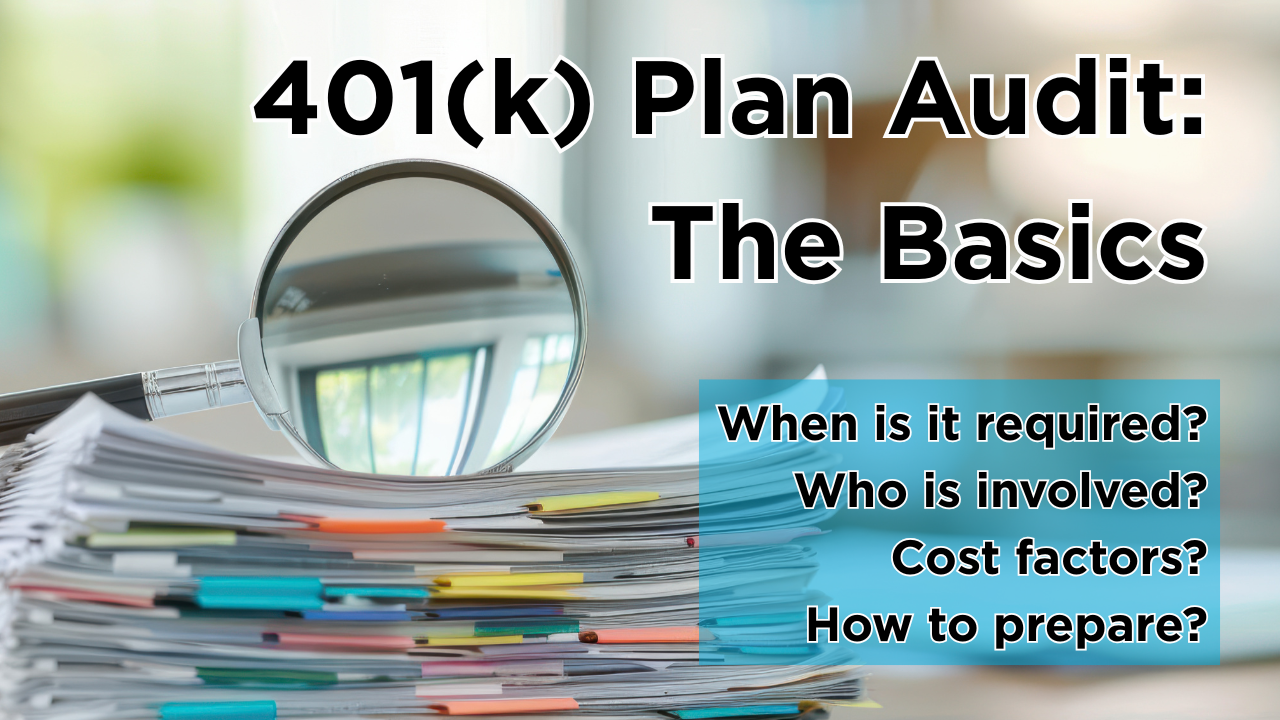

If your organization offers a 401(k) plan, understanding when and why a 401(k) audit is required is essential for maintaining compliance and avoiding potentially costly penalties. Abbey Street’s Retirement Plan Consultant, Luke Holliday, breaks down the basic components of a 401(k) plan audit—including when an audit becomes necessary, the key parties involved in the process, and the potential financial implications for your business.
Whether you’re navigating your first audit or looking to stay ahead of regulatory requirements, this guide will help you understand the essentials.
The Department of Labor (DOL) mandates that 401(k) plans with 120 or more eligible participants at the beginning of the plan year must undergo an annual audit by an independent qualified public accountant. This audit is filed with Form 5500 and ensures the plan’s compliance with the Employee Retirement Income Security Act (ERISA).
Notably, the DOL introduced a change effective for plan years beginning on or after January 1, 2023: only participants with account balances are counted toward the audit threshold. This adjustment may exempt some plans from the audit requirement.
Additionally, the “80-120 rule” allows plans with 80 to 120 participants to continue their previous year’s filing status, providing flexibility for growing businesses.
A 401(k) audit involves collaboration among various parties:
The auditor evaluates the plan’s financial statements, tests for compliance with IRS and DOL regulations, and ensures proper safeguarding of participant assets.
The cost of a 401(k) audit varies based on several factors, including the plan’s size, complexity, and compliance history. Generally, audit fees range from several thousand to tens of thousands of dollars.
Factors influencing the cost include:
Employers are responsible for covering the cost of the audit.
To streamline the audit process and ensure compliance:
Proactive preparation not only facilitates a smoother audit process but also helps avoid costly errors or delays that could result in penalties or jeopardize the plan’s integrity.
Understanding and adhering to 401(k) audit requirements is essential for maintaining compliance and protecting the interests of plan participants. By staying informed and prepared, your organization can navigate the audit process effectively and uphold the integrity of your retirement plan.
Start a conversation to learn more about who we are and what we do. Our team is ready to make an impact.
Contact Us